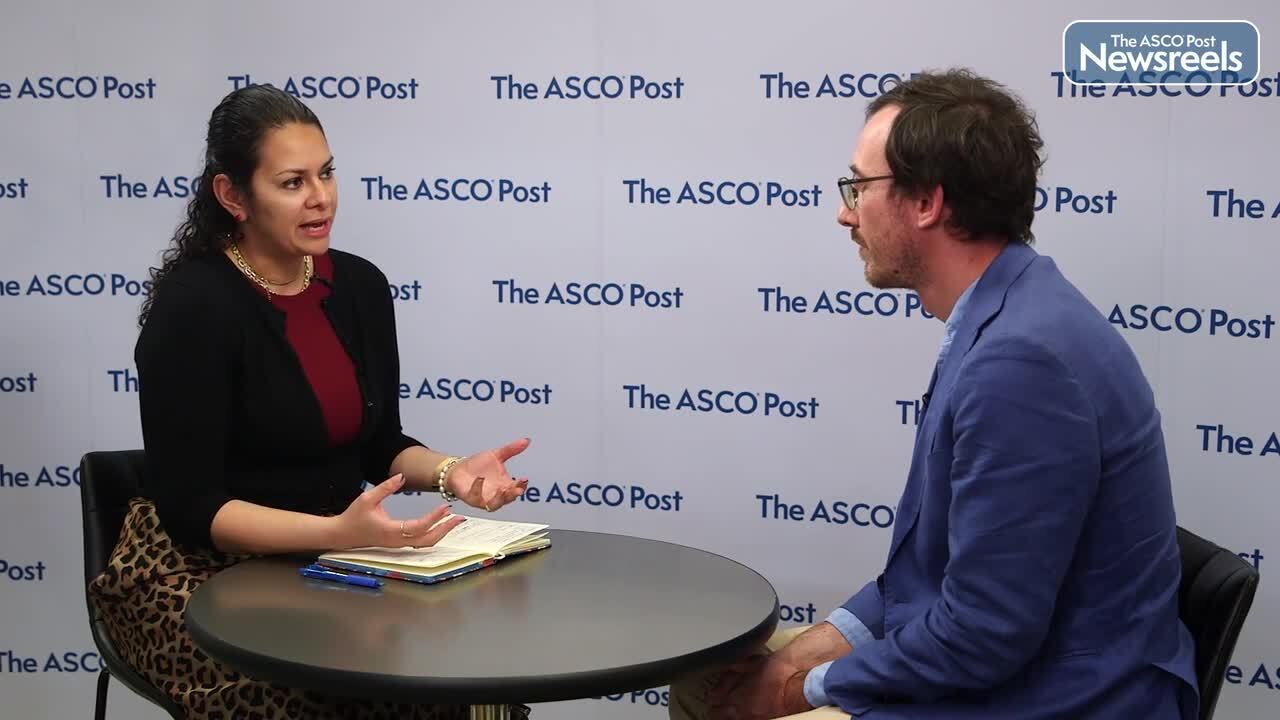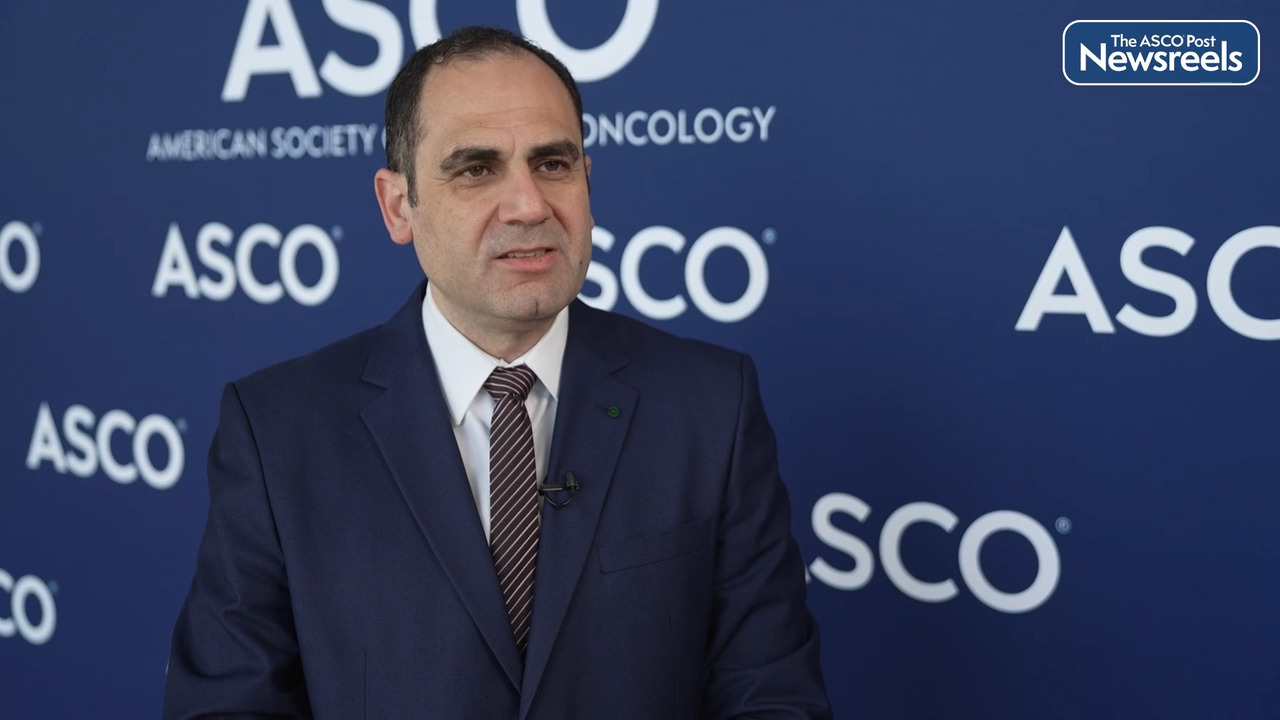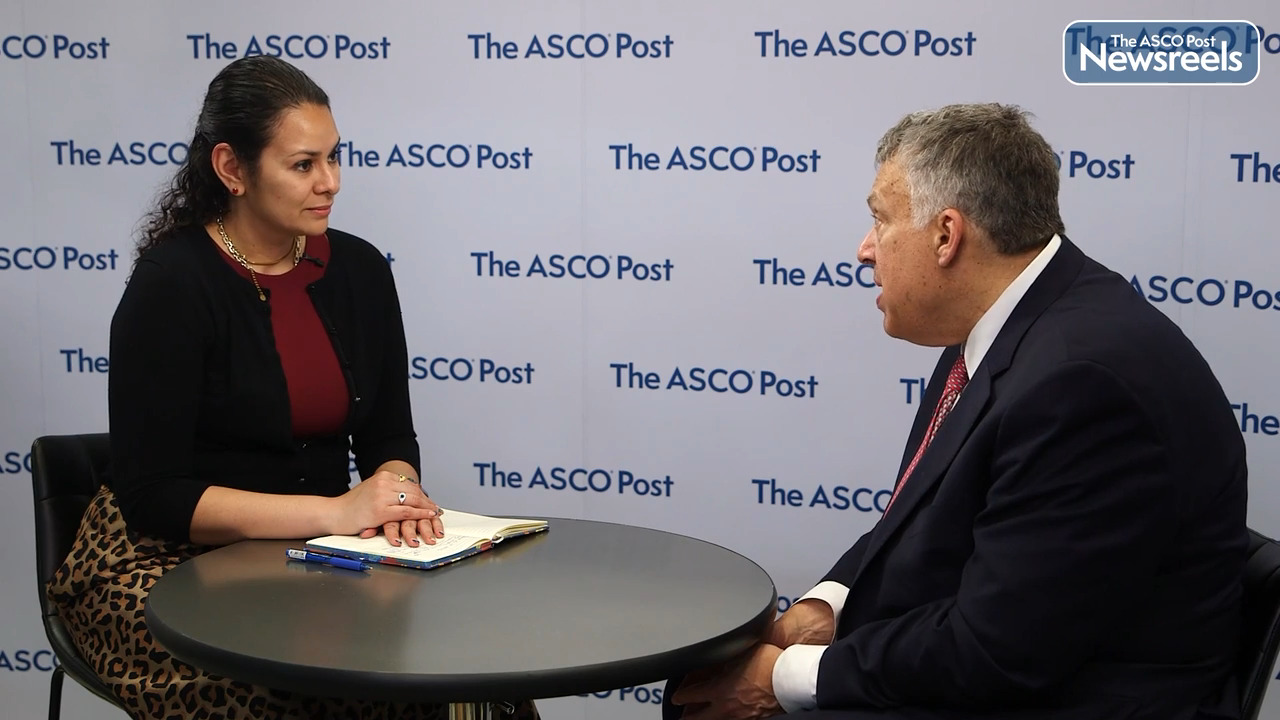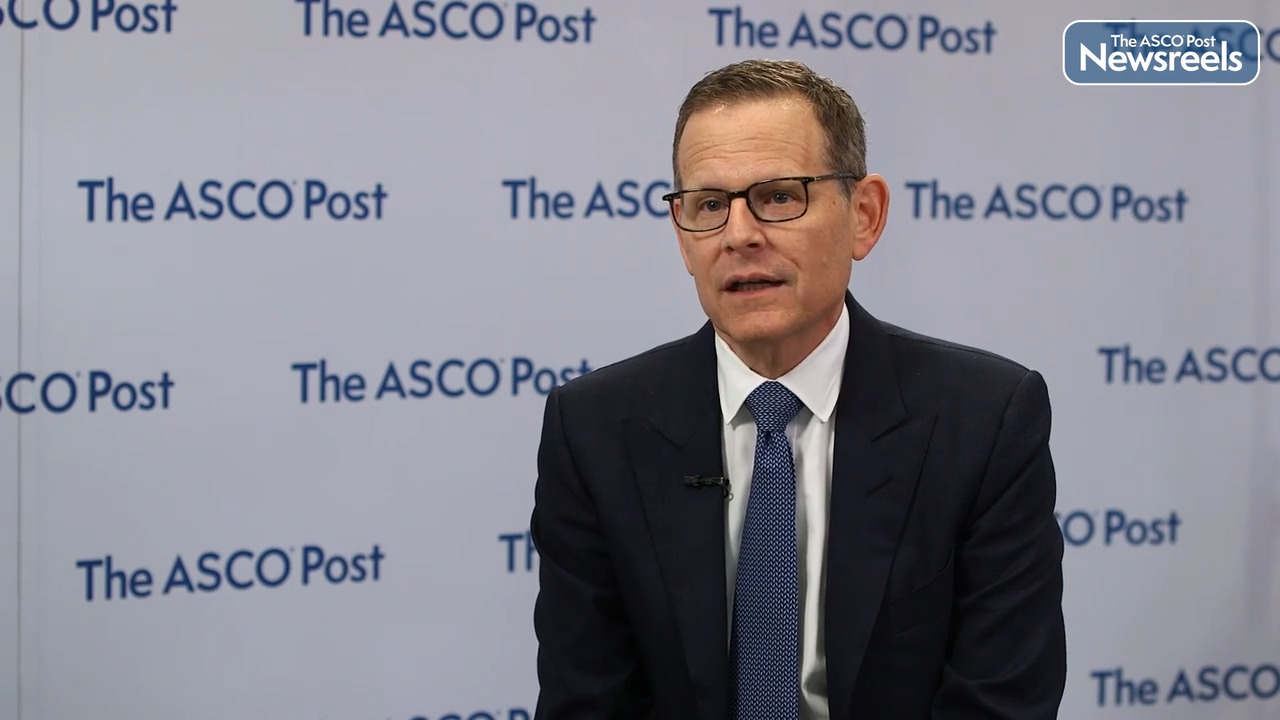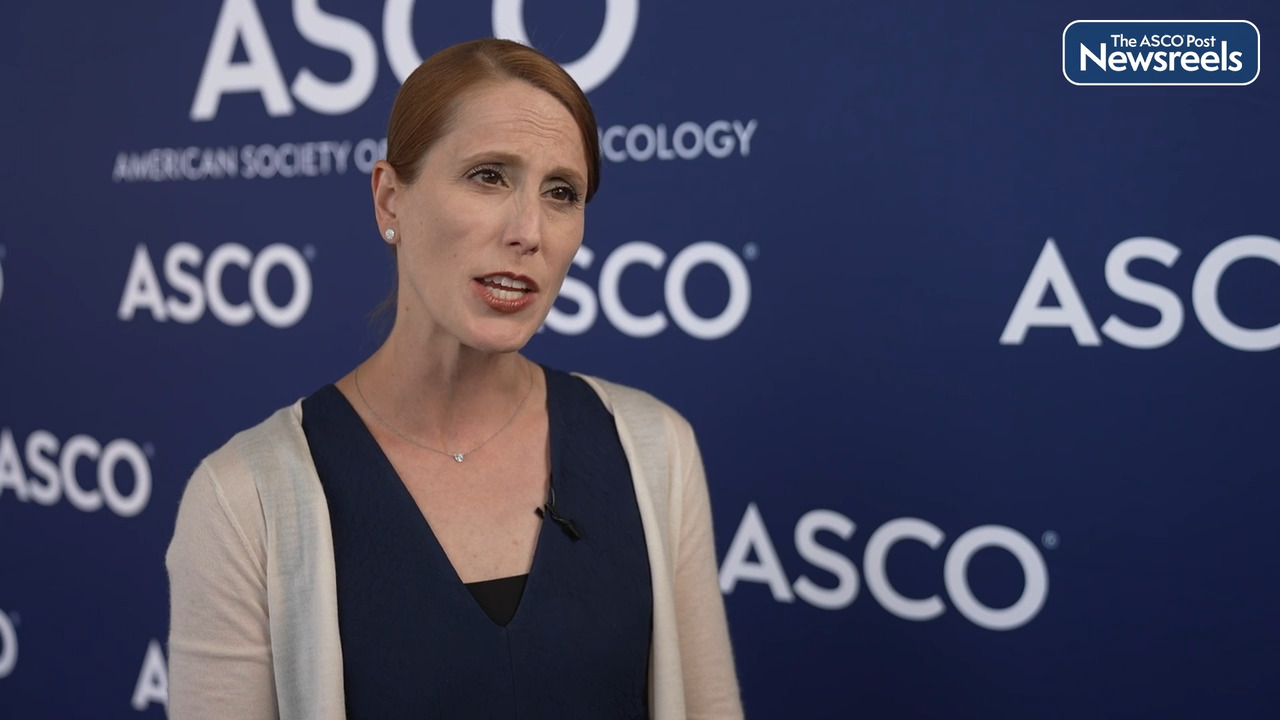Carmen E. Guerra, MD, MSCE, on Diversity, Equity, and Inclusion in Clinical Trials: Expert Commentary
2023 ASCO Annual Meeting
Carmen E. Guerra, MD, MSCE, of the University of Pennsylvania Abramson Cancer Center, discusses three key abstracts presented at ASCO: strategies to increase accrual of underrepresented populations in Alliance NCTN trials, how patient-clinician education can strengthen partnerships and improve diversity in breast and lung cancer trials, and mediators of racial and ethnic inequities in clinical trial participation among U.S. patients with cancer from 2011 to 2022 (Abstracts 6509, 6510, 6511).
The ASCO Post Staff
Narjust Florez, MD, of Dana-Farber Cancer Institute, and Filippo Gustavo Dall’Olio, MD, of Institut Gustave Roussy, discuss circulating tumor DNA tumor fraction, and its link to survival in patients with advanced non–small cell lung cancer (NSCLC) treated with maintenance durvalumab in the UNICANCER SAFIR02-Lung/IFCT1301 trial. Tumor fraction was positive in 16% of patients randomly assigned to receive durvalumab in the study. This population seems to have a limited benefit from maintenance durvalumab after induction chemotherapy (Abstract 2516).
The ASCO Post Staff
Amer Methqal Zeidan, MBBS, MHS, of Yale University and Yale Cancer Center, discusses phase III findings on the first-in-class telomerase inhibitor imetelstat, which was given to patients with heavily transfusion-dependent non-del(5q) lower-risk myelodysplastic syndromes that are resistant to erythropoiesis-stimulating agents. Imetelstat resulted in a significant and sustained red blood cell (RBC) transfusion independence in 40% of these heavily transfused patients. The response was also durable and accompanied by an impressive median hemoglobin rise of 3.6 g/dL, and seen in patients with and without ring sideroblasts. Importantly, reduced variant allele frequency was observed in the most commonly mutated myeloid genes which correlated with duration of transfusion independence and hemoglobin rise, therefore suggesting a disease-modifying potential of this agent (Abstract 7004).
The ASCO Post Staff
Narjust Florez, MD, of Dana-Farber Cancer Institute, and Roy S. Herbst, MD, PhD, of Yale Cancer Center, discuss new phase III findings on osimertinib, a third-generation, central nervous system EGFR-TKI, which demonstrated an unprecedented overall survival benefit for patients with EGFR-mutated, stage IB–IIIA non–small cell lung cancer after complete tumor resection, with or without adjuvant chemotherapy (Abstract LBA3).
The ASCO Post Staff
Clifford A. Hudis, MD, ASCO Chief Executive Officer, talks about extending the reach and impact of ASCO by partnering with patients who play a key role in advancing science through clinical trial participation. With near-record numbers of registered attendees, the 2023 Annual Meeting fostered new connections and plans for collaborations.
The ASCO Post Staff
Sarah K. Tasian, MD, of Children’s Hospital of Philadelphia, summarizes three studies presented at ASCO: genomic determinants of outcome in acute lymphoblastic leukemia (ALL), a phase III trial of inotuzumab ozogamicin for high-risk B-cell ALL, and preliminary results from the first-in-child phase II trial of bosutinib in pediatric patients with newly diagnosed chronic myeloid leukemia (Abstracts 10015, 10016, and 10017).
